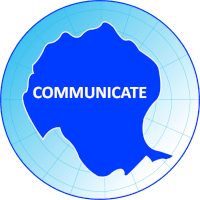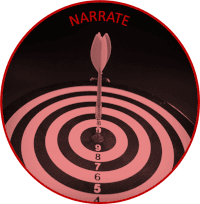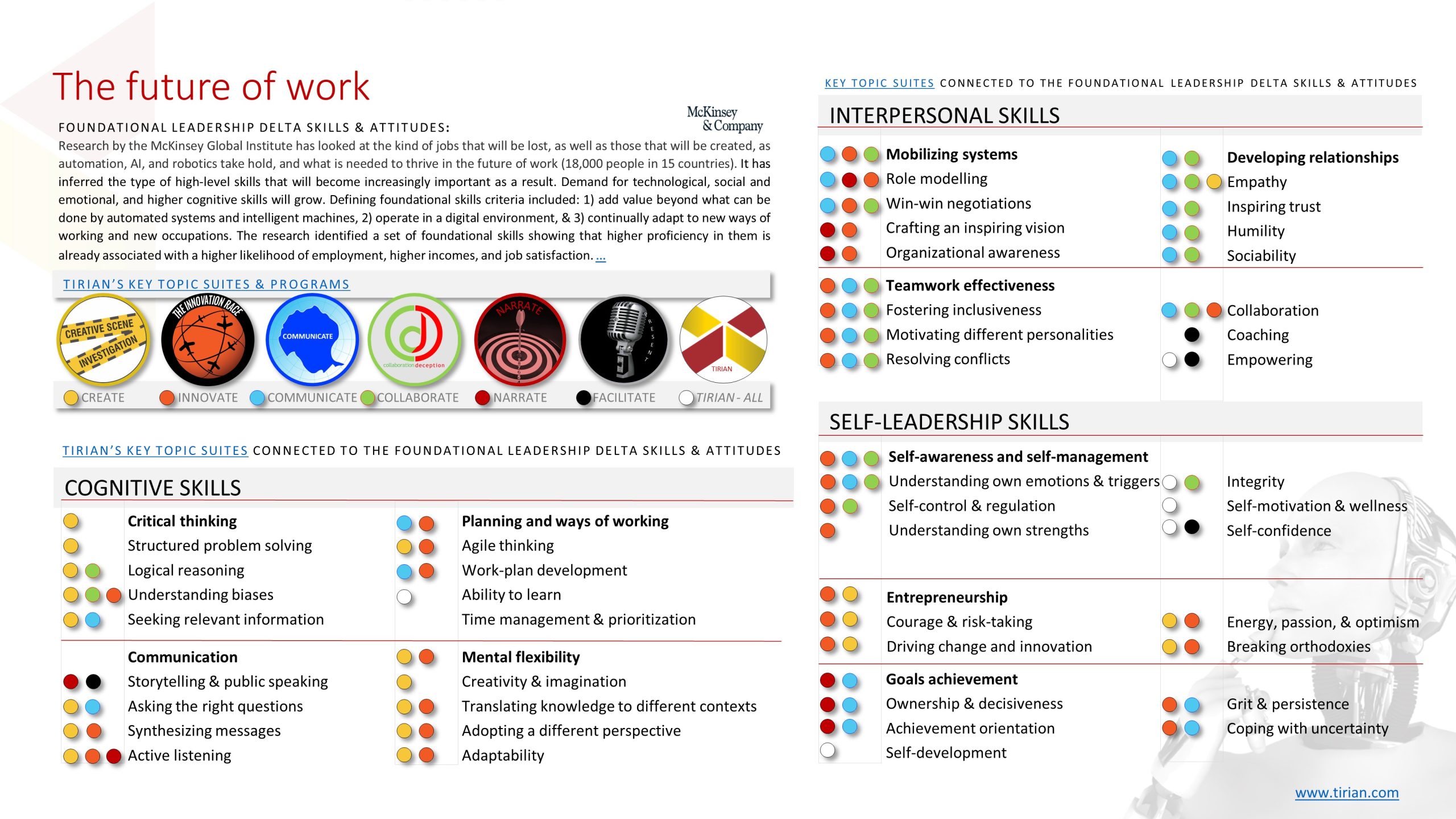Solutions by
Key Topic Suites
About
Tirian’s Suites are outcome-focused integrated learning experiences. These Suites are designed to address critical core business areas related to business transformation through innovation.
Each Suite is made up of a number of interconnected Programs, and each program includes several developmental Modules. These modules can be customised and adapted to meet specific client outcomes and parameters.
See how we have mapped our 6 key topic suites and programs against the McKinsey Global Institute Research on 56 foundational DELTA skills & attitudes, to future-proof citizens’ ability to work’. (Download PDF)
Topic statements:
We want to…
CREATE: Be more creative – to come up with better solutions faster
INNOVATE: Become ambidextrous leaders – to strategically plan for future-ready growth & sustainable innovation, and to manage the tension innovation & change brings.
COMMMUNICATE: Lead high performance teams – to become more aligned while embracing diversity across cultures & in challenging contexts (e.g. distributed & virtual environments).
COLLABORATE: Work collaboratively in a competitive environment – to increase morale and improve bottom line results.
NARRATE: Design a contextualised vision mission and values – to drive behaviours and ensure a consistent & competitive brand advantage.
Each of these areas have built in ambiguities that need resolving, so achieving these goals typically requires more than skill based training. The embedded paradox needs to be identified, explored and actively addressed in a dynamic learning environment – ensuring practical outcomes are reached. Dr Gaia Grant’s research on paradox theory and sensemaking provides a unique foundation for our dynamic educational approach.
Leadership specialist topics
Academic Papers & Deep Dives
1. Rallying around a shared purpose
‘How the top management team experiences paradoxical demands in strategizing’.
2. Dual leadership dynamics
Identifying how dual executive leaders navigate competing innovation sustainability demands in growing organisations’, ‘From Start-up to Scale-up, How Leaders Navigate Scale-up tensions.’
3. From detecting dichotomies to navigating dipoles
How senior leaders negotiate competing demands.
4. Profiling innovation leaders
Developing and applying a multidimensional measure of paradoxical innovation leadership orientations for Identifying ambidexterity across different occupational profiles.
5. Creating agile leadership teams
How shared leadership models can better manage the ambiguities of sustainable innovation and growth.

Gaia Grant (PhD)
Executive Director Tirian, Author, Designer, Researcher & Lecturer
Associate Adjunct Faculty, Work-Integrated Learning Hub | Discipline of Strategy, Innovation and Entrepreneurship | University of Sydney Business School








